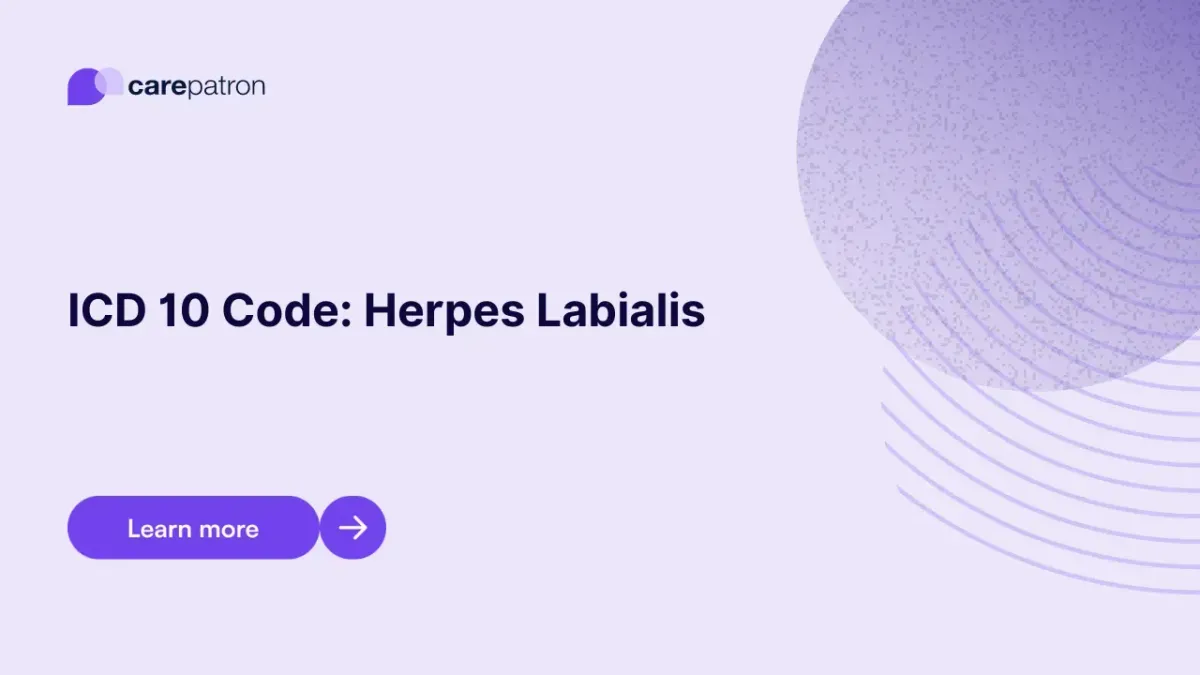
Herpes Labialis ICD-10-CM Codes | 2023
Read this short guide to learn about Herpes Labialis ICD codes you can use!
Use Code
Commonly asked questions
Besides the blisters, their mouth area will itch a lot, and they might feel pain. Sometimes, the pain has a burning sensation.
Herpes Labialis can be treated using antiseptic soap, using ice compress on the blisters to relieve pain, avoiding salty and spicy food, avoiding hot drinks, and taking pain killers. Healthcare professionals might administer and prescribe antiviral creams, tablets, and agents.
No. Even if it “disappears,” it will remain dormant until something reactivates. It can reactivate because of fevers, weakened immune systems, and emotional stress.
EHR and practice management software
Get started for free
*No credit card required
Free
$0/usd
Unlimited clients
Telehealth
1GB of storage
Client portal text
Automated billing and online payments
